One of the most controversial characters of cultural life here, Schlingensief made an enduring impression even on non-theatre goers, due to his ability to provoke and goad on a wide range of sensitive social and political issues. There was the time when the far-right, anti-immigrant Freedom Party of Jörg Haider joined the coalition government in Austria in 2000. Schlingensief reacted quickly, setting up a Big Brother-style container in front of Vienna’s Opera House and filling it with 12 asylum-seekers whose applications had been rejected, but whom the public would be able to vote out of the container, and the country, over the following 12 weeks. Auslander Raus! created a storm of publicity across Europe and remains to this day one of the most pungent and pertinent expressions of distaste not only towards that government but also asylum politics in the EU.
Other Schlingensief “stunts” whose effects have invariably lasted far beyond the actions themselves include his casting of neo-Nazi skinhead amateur actors in his production of Hamlet (pictured below left, Schauspielhaus Zurich 2001, photo by David Baltzer), and burning an effigy of the former Israeli prime minister Ariel Sharon.
 During the 1998 federal election he donned a sandwich board bearing the slogan: “Kill Helmut Kohl” at Kassel’s Documenta exhibition, and invited Germany’s then four million unemployed to take a dip in the Wolfgangsee, a lake where Kohl used to take his holidays. The idea was that they would cause it to overflow and ruin the chancellor’s retreat. In the event only a few hundred turned up, but Schlingensief had secured far more publicity for the stunt than any demonstration would ever have done.
During the 1998 federal election he donned a sandwich board bearing the slogan: “Kill Helmut Kohl” at Kassel’s Documenta exhibition, and invited Germany’s then four million unemployed to take a dip in the Wolfgangsee, a lake where Kohl used to take his holidays. The idea was that they would cause it to overflow and ruin the chancellor’s retreat. In the event only a few hundred turned up, but Schlingensief had secured far more publicity for the stunt than any demonstration would ever have done.Schlingensief grew up in a strict Catholic household, the son of a paediatric nurse mother and pharmacist father. He began his career in entertainment by producing the TV soap opera Lindenstrasse (Linden Street). He was later behind an obscure TV film for the state broadcaster called Sheep in Wales. But finding such work “ghastly”, Schlingensief soon discovered his penchant for provoking. He produced his own film, 100 Years of Hitler, which he described as a “wild take on the demise of Hitler and his followers”.
He was deeply critical of the 1990 reunification of Germany, of which Kohl was the architect, and his anger spawned the film The German Chainsaw Massacre, in which reunification is seen as a kind of national blood-letting and provokes a bloodthirsty family of West German butchers to hack countless East Germans to death and turn them into sausage meat. It achieved cult status.
 Berlin’s Volksbühne Theater in Berlin took him on as an in-house director in the 1990s, under artistic director Frank Castorp, where his creations, including the controversial Hamlet, became legendary. He fought and won the right to put a dead hare on stage at the Bayreuth Festival in Bayreuth, the Richard Wagner opera extravaganza, when he staged Parsifal there in 2004. Although viewed with a mix of praise and disdain, his production (pictured right, Bayreuther Festspiele, Marcus Führer/DPA) was credited with giving the staid festival a much needed lift.
Berlin’s Volksbühne Theater in Berlin took him on as an in-house director in the 1990s, under artistic director Frank Castorp, where his creations, including the controversial Hamlet, became legendary. He fought and won the right to put a dead hare on stage at the Bayreuth Festival in Bayreuth, the Richard Wagner opera extravaganza, when he staged Parsifal there in 2004. Although viewed with a mix of praise and disdain, his production (pictured right, Bayreuther Festspiele, Marcus Führer/DPA) was credited with giving the staid festival a much needed lift.Paying tribute to him this week Katharina Wagner, the festival’s co-director, said, “His Parsifal was a turning point for Bayreuth, from both the interpretational aspect and the way of working. After Schlingensief had been here, everything became more open, more flexible.”
Schlingensief’s cancer diagnosis in 2008 completely refocused the subject of his work. After an initial withdrawal from public life, he returned with a vengeance, presenting works at the Ruhr Triennale arts festival – such as Church of Fear, a sort of requiem - that addressed his own fears about death and drew criticism that he had become self-obsessed. (To which Schlingensief replied he was speaking on behalf of everyone by addressing his existential fears, and against the “speechlessness of death”.)
Heaven Cannot Be As Beautiful As Here was the title of his cancer diaries which he published in 2008 and which became a bestseller. When he received the news that his cancer had spread uncontrollably, Schlingensief delivered the news in a deadpan manner. “There will be no extended run of this show,” he said.

But he poured most of his remaining life energies into a development project in Africa, laying the foundation stone for the Festival Hall of Africa that lay at the heart of his Remdoogo – Opera Village masterplan in Burkina Faso.
His ambitious goals to build an opera house (pictured above and below left, his visit last February to the official ground-breaking ceremony, photos Aino Laberenz), a school and an infirmary in an entire educational complex near Ouagadougou underlined the way in which he tried to fight his illness where others might have quietly withdrawn, by continuing to develop the ideas that teemed from his brain, and taking on ever more work. Last year he married his girlfriend, Aino, a costume and set designer, and repeatedly claimed that her presence had added quality and time to his life. She was at his side when he died.
 The Süddeutsche Zeitung (South Germany Times) described how he “fought against death with a measure of lunacy and energy that took your breath away just to observe him.” Even following the “action opera” Via Intolleranza II in Munich at the end of May, which would prove to be his last premiere, he was talking enthusiastically about his upcoming projects, including an invitation in 2014 to put Tristan und Isolde on the Bayreuth stage.
The Süddeutsche Zeitung (South Germany Times) described how he “fought against death with a measure of lunacy and energy that took your breath away just to observe him.” Even following the “action opera” Via Intolleranza II in Munich at the end of May, which would prove to be his last premiere, he was talking enthusiastically about his upcoming projects, including an invitation in 2014 to put Tristan und Isolde on the Bayreuth stage.
Extraordinarily frank attempts at public analyses of his illness were also part of his way of dealing with it. He mulled over the idea that his having felt “too much of an affiliation with death in my art” might have given him cancer. (It wasn’t cigarettes, as he didn’t smoke). He took as his adage the words of his great idol, Joseph Beuys, who said, “He who shows his wounds will be healed, he who hides them, won’t be.”
Tributes to Schlingensief have been flowing in from around the world, and while projects - such as his role as curator for the German pavilion at the 2011 Venice Biennale – are in doubt, there is a strong determination amongst the enfant terrible’s allies that his work must continue. Berlin’s Staatsoper said this week that Schlingensief’s production of Metanoia, a new opera by Jens Joneleit which is due to open the house’s autumn season on 3 October under Daniel Barenboim's baton, would go ahead.
The publishers Kiepenheuer und Witsch said the memoirs he had been working on were “almost completed” (he had recently delivered the manuscript) and would probably be published this autumn, and the Goethe Institute said that it was fully intent on continuing Schlingensief’s "Opera Village" in Burkina Faso. Its first pupils are due to start school there a week tomorrow.
The man once described as Germany’s most disciplined anarchist, would have been deeply proud. “I have just one thought that comforts me,” he said when the foundation stone was laid in Remdoogo six months ago. “That my energy that makes up what I am here and now will remain, even when my outer self is no more.”
- Schlingensief's website continues to announce projects of his under way in future
- Find his cancer diary Heaven Cannot Be as Beautiful as Here (in German only) on Amazon
- Auslander Raus! (Schlingensief's Container) a DVD documentary of the event
Below, Christoph Schlingensief video as he arrives in Burkina Faso explaining the Remdoogo project (in German) - the plans and scale are shown 2mins into the video:

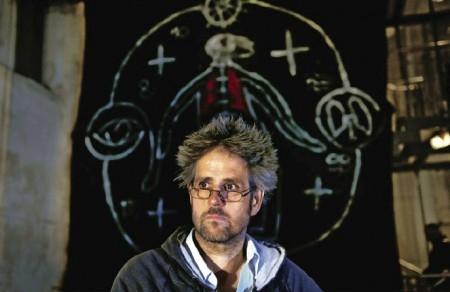


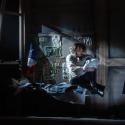
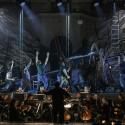
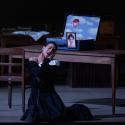
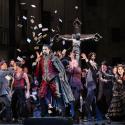
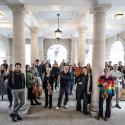
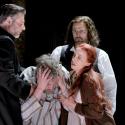
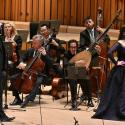


Add comment